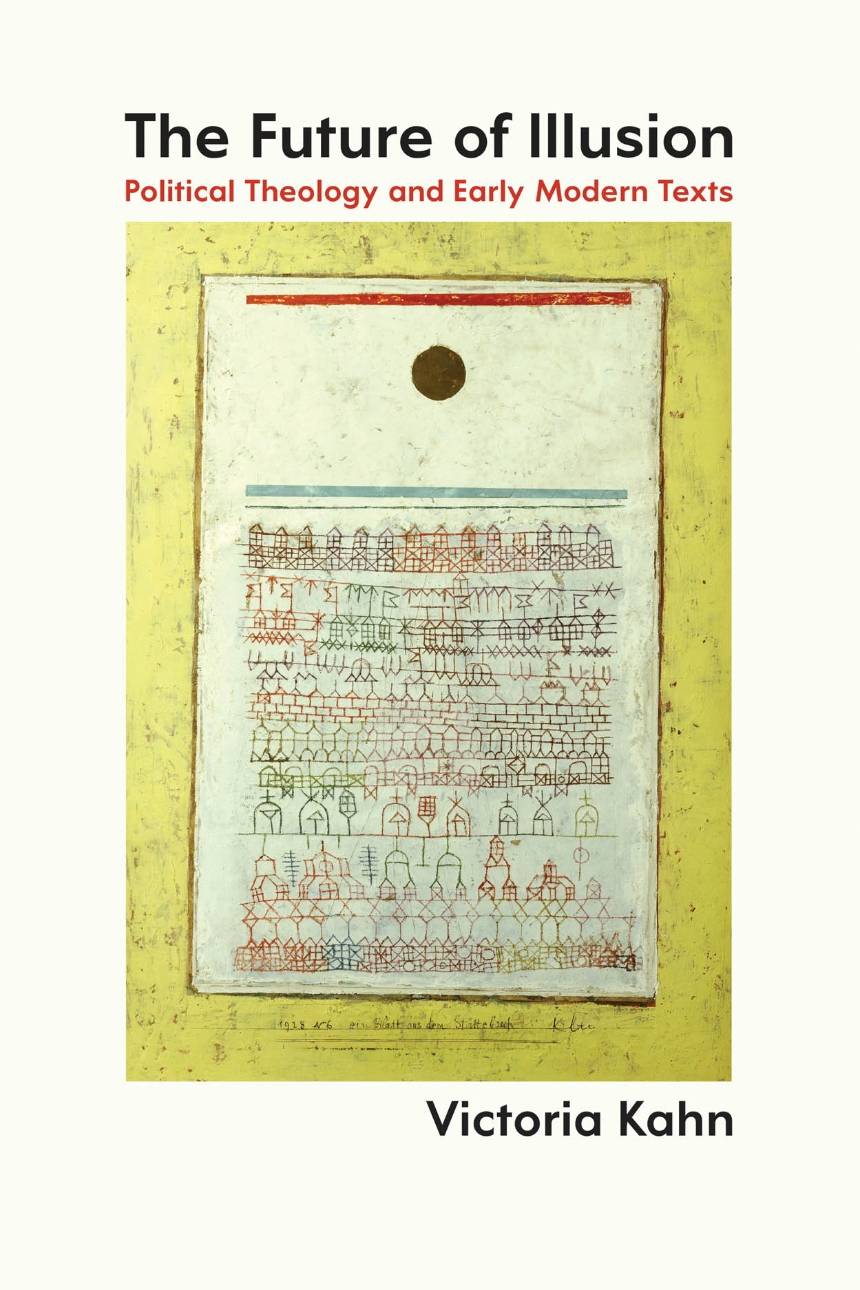The Future of Illusion
Political Theology and Early Modern Texts
9780226379371
9780226083872
9780226083902
The Future of Illusion
Political Theology and Early Modern Texts
In recent years, the rise of fundamentalism and a related turn to religion in the humanities have led to a powerful resurgence of interest in the problem of political theology. In a critique of this contemporary fascination with the theological underpinnings of modern politics, Victoria Kahn proposes a return to secularism—whose origins she locates in the art, literature, and political theory of the early modern period—and argues in defense of literature and art as a force for secular liberal culture.
Kahn draws on theorists such as Carl Schmitt, Leo Strauss, Walter Benjamin, and Hannah Arendt and their readings of Shakespeare, Hobbes, Machiavelli, and Spinoza to illustrate that the dialogue between these modern and early modern figures can help us rethink the contemporary problem of political theology. Twentieth-century critics, she shows, saw the early modern period as a break from the older form of political theology that entailed the theological legitimization of the state. Rather, the period signaled a new emphasis on a secular notion of human agency and a new preoccupation with the ways art and fiction intersected the terrain of religion.
Kahn draws on theorists such as Carl Schmitt, Leo Strauss, Walter Benjamin, and Hannah Arendt and their readings of Shakespeare, Hobbes, Machiavelli, and Spinoza to illustrate that the dialogue between these modern and early modern figures can help us rethink the contemporary problem of political theology. Twentieth-century critics, she shows, saw the early modern period as a break from the older form of political theology that entailed the theological legitimization of the state. Rather, the period signaled a new emphasis on a secular notion of human agency and a new preoccupation with the ways art and fiction intersected the terrain of religion.
264 pages | 6 x 9 | © 2013
Literature and Literary Criticism: General Criticism and Critical Theory
Philosophy: Philosophy of Religion
Political Science: Classic Political Thought
Religion: Religion and Literature
Reviews
Table of Contents
Abbreviations
Preface
Introduction
1 Hamlet or Hecuba: Carl Schmitt’s Decision
2 Sacred Kingship and Political Fiction: Ernst Kantorowicz, Carl Schmitt, Ernst Cassirer, and Walter Benjamin
3 Machiavelli and Modernity: Leo Strauss, Carl Schmitt, and Ernst Cassirer
4 Spinoza and Liberal Culture: Leo Strauss, Carl Schmitt, and Hannah Arendt
5 Freud’s Spinoza/Freud’s Illusions
Coda
Notes
Index
Preface
Introduction
1 Hamlet or Hecuba: Carl Schmitt’s Decision
2 Sacred Kingship and Political Fiction: Ernst Kantorowicz, Carl Schmitt, Ernst Cassirer, and Walter Benjamin
3 Machiavelli and Modernity: Leo Strauss, Carl Schmitt, and Ernst Cassirer
4 Spinoza and Liberal Culture: Leo Strauss, Carl Schmitt, and Hannah Arendt
5 Freud’s Spinoza/Freud’s Illusions
Coda
Notes
Index
